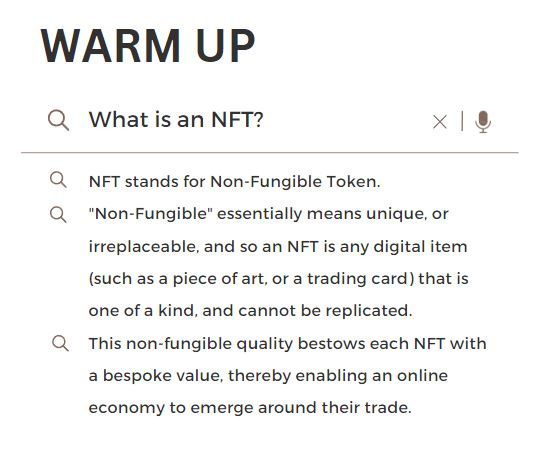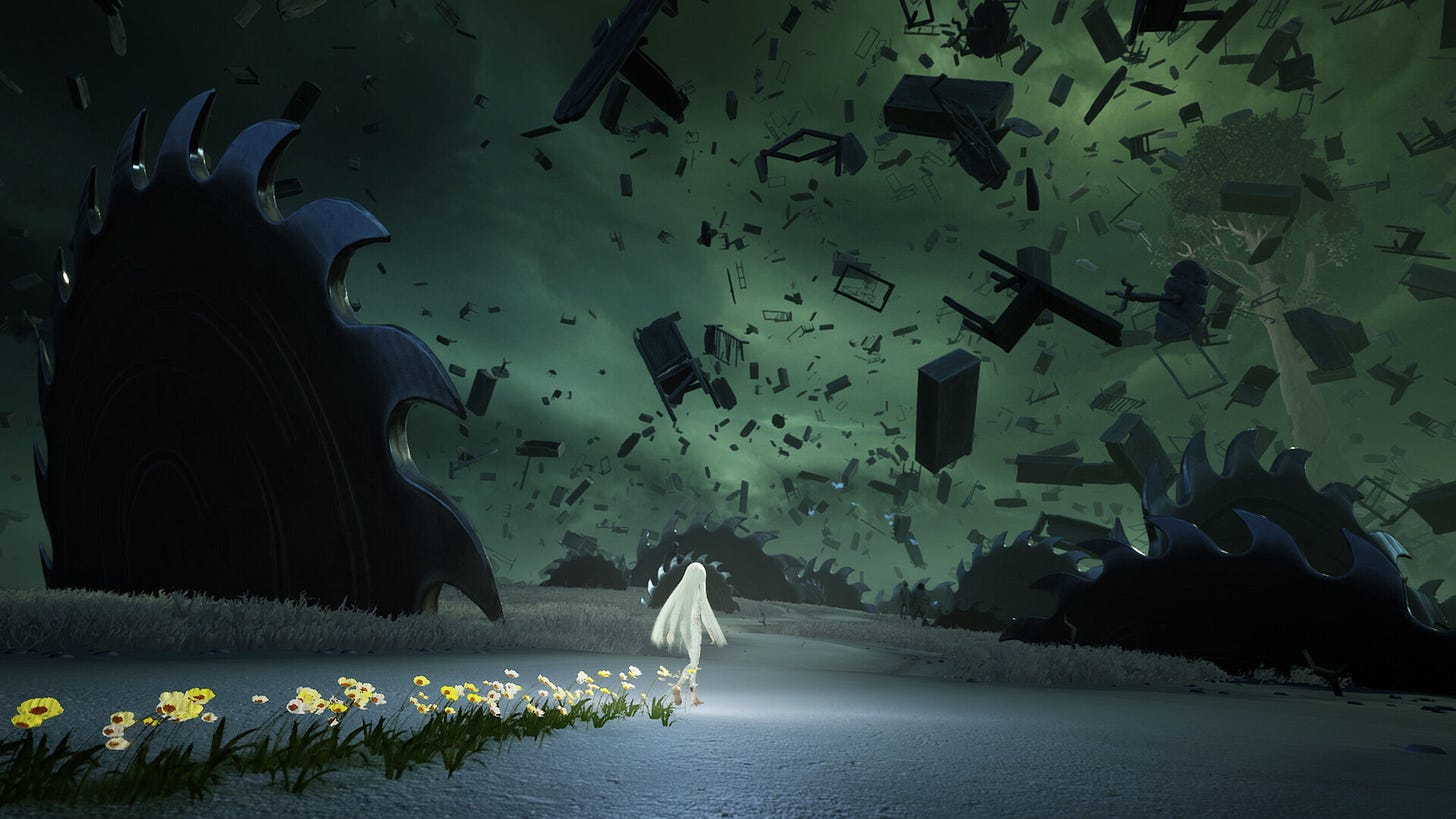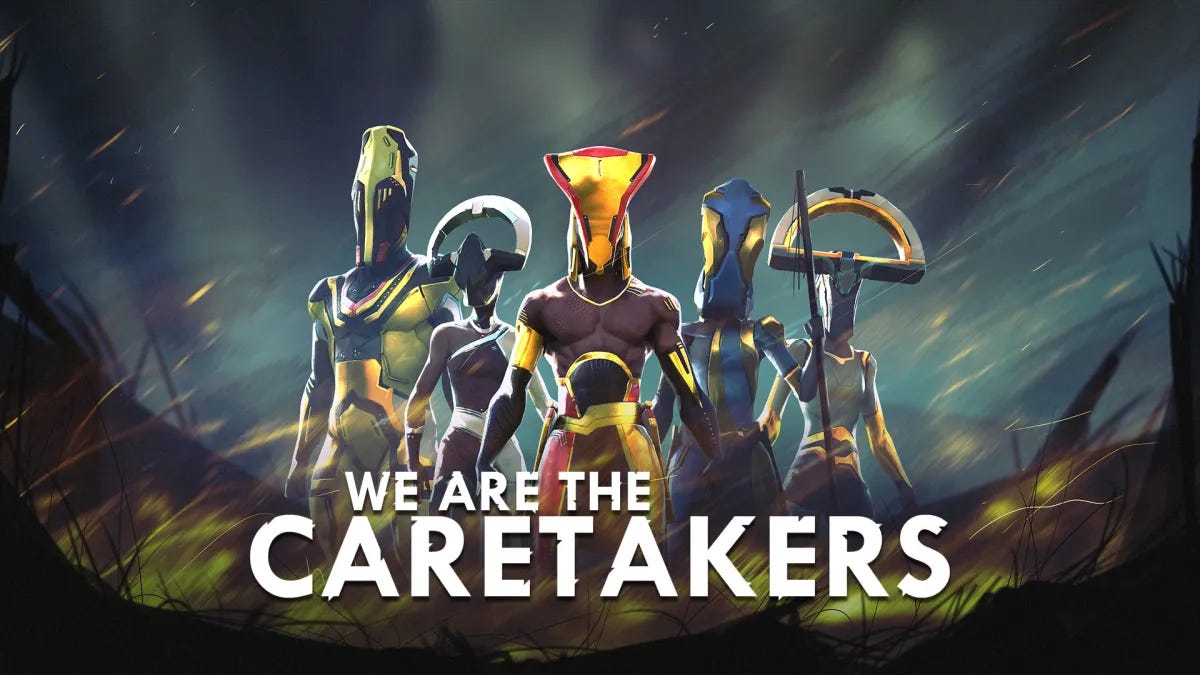Gaming's on-off relationship with NFTs explained
Your latest digest of video game and climate change news from the past two weeks.
Welcome to the latest edition of Play Anthropocene!
Today is Tuesday, January 10th, and we’re covering the latest developments in the world of video games and climate change. Happy reading!
Environmentally hazardous NFTs no longer considered the industry’s next big Golden Goose
PC Gamer’s Tyler Wilde has reported on a reassuring trend that seems to be emerging across the industry, looking at how players around the world have come out in force against the recent push to integrate NFTs into video games, with developers and publishers seemingly receiving the message loud and clear.
It’s no secret that NFT production is an alarmingly energy intensive process, and while there are more sustainable alternative manufacturing methods in existence, these remain the exception in practice, rather than the norm. Given that, their proliferation across the games industry would only serve to expand its already sizeable carbon footprint, no matter how publishers like Ubisoft might try to spin the narrative about their environmental impact.
Should we applaud publishers for doing the bare minimum, and U-turning on NFTs to save face? Hardly, but it is worth celebrating the fact that player communities have rallied together to boot NFTs off the stage of mainstream gaming, at least for now, demonstrating the influence they can have when raising their collective voice.
That said, we shouldn’t be penning the eulogy for video game NFTs just yet. Square Enix has now doubled down on previously expressed commitments to fold them into its video game portfolio, with company president Yosuke Matsuda revealing in a New Year’s letter that the publisher has “multiple blockchain games based on original IPs under development”.
Square Enix already announced one NFT game, Symbiogenesis, earlier this year, which - in keeping with what we’re seeing elsewhere across the sector - has already received a notable amount of fan backlash. Matsuda’s expressed confidence in the blockchain as a viable business strategy could be seen as an effort to try and bring some stability to an already tumultuous market, but we’ll have to wait and see whether Square ever reaches its predicted payoff for placing so many eggs in the NFT basket.
Piccolo Studio co-founders on their desire to bring a rare message of hope to the cli-fi genre in After Us
Climate fiction (or “cli-fi”) is an emerging genre of storytelling that explores different themes, ideas, and emotions related to the climate crisis. While many of these stories have been circulating around cinema and literature for a while, a new wave video games are now beginning to wade into hard cli-fi territory, perhaps as the effects of climate change are starting to be more deeply felt across the industry.
Enter After Us, the latest title from Piccolo Studio, who you may recognise as the developer behind 2019’s quietly devastating narrative adventure game, Arise: A Simple Story. While Arise explored a unique interpretation of the afterlife, After Us is instead more interested in the world that we’re leaving behind once we’re gone.
Players will take on the role of Gaia, the personified spirit of life, exploring a surrealist abstraction of a climate-wrecked Earth to free the captive souls of the animals that humanity has driven to extinction. In a new interview with VentureBeat, Piccolo Studio co-founders Alexis Corominas and Jordi Ministral have elaborated on their intention to use After Us a vehicle for exploring “the ideas of legacy […] Not just your children or grandchildren, but as a generation or as a human species.”
“Ultimately, the game is talking about the different sides and faces of humankind.” Corominas tells VentureBeat. “And what we want to tell with this game that we know that humans are agents of destruction. But at the same time, we’re agents of hope and love. There’s a statement that we love from a physicist from Barcelona. We like it a lot. It says that humans are the only animal that kills for pleasure. At the same time, it’s the only one that writes the most beautiful poetry.”
As the climate crisis continues to rise to the forefront of global conversation, you can expect to see more games like After Us diving into the vast kaleidoscope of questions and subject matter that it raises. Previously, games have tended to use climate change as mere set dressing for their stories, but Piccolo Studio’s latest effort is helping to illustrate the wealth of narrative and gameplay opportunities available for developers who decide to more meaningfully explore the crisis via their craft.
Newly launched strategy game simulates the real-life struggle against wildlife poaching
We Are The Caretakers released on PC and Xbox last week, and offers players a potent Afrofuturist allegory for a vital strand of conservation work.
Developed by Heart Shaped Games, the new strategy title is inspired by the ongoing effort to prevent the poaching of endangered animals for illegal wildlife trade. Writing on Xbox Wire, studio founder Scott Brodie explained how the team connected with real-life rangers and conservationists to learn about the dangers and strategies of poacher management first-hand.
“Rangers work in small teams, with limited resources, tracking animals and poachers that move in unpredictable patterns across gigantic spaces,” writes Brodie. “That unique management challenge translated into interesting gameplay decisions, and mapped perfectly to the squad-building and large roster management RPGs we loved.”
Brodie also points to Heart Shaped Games’ “diverse development team” as an important asset in the creation of We Are The Caretakers, raising an important question about the skewed input and influences that have historically fed into environmental narratives.
With much of our mainstream climate fiction dominated by stories from the Global North, the need for a broader range of perspectives, including those of indigenous communities, is critical for the development of media that authentically reflects the full spectrum of voices across the global climate struggle. The games industry has an opportunity to lead the way in cultivating this healthier balance of worldviews; I hope we’ll start to see more developers rising up to the challenge.
Meanwhile, you can pick up We Are The Caretakers right now, and better yet, 10% of your purchase will be donated to Wildlife Conservation Network’s Rhino Recovery Fund to help combat the illegal rhino horn trade.
Enjoyed this newsletter? Subscribe or spread the word about Play Anthropocene to others who might be interested, and if you have any feedback or questions, feel free to get in touch with me at PlayAnthropocene@gmail.com
Find me on Twitter: @alexavard95









Just discovered Play Anthropocene after a Substack recommendation from Hit Points' very own Nathan Brown - I think it's a great idea!
Anyhow, just wanted to say thanks for making me aware of We Are The Caretakers - the combo of strategy, JRPG, conservation and Afro-futurism puts it firmly up most of my alleys. And then I discovered that the narrative lead is Xalavier Nelson Jnr. who was responsible for the absurdist An Airport for Aliens Currently Run by Dogs, which I finished only the other week, so straight onto the wishlist it went!